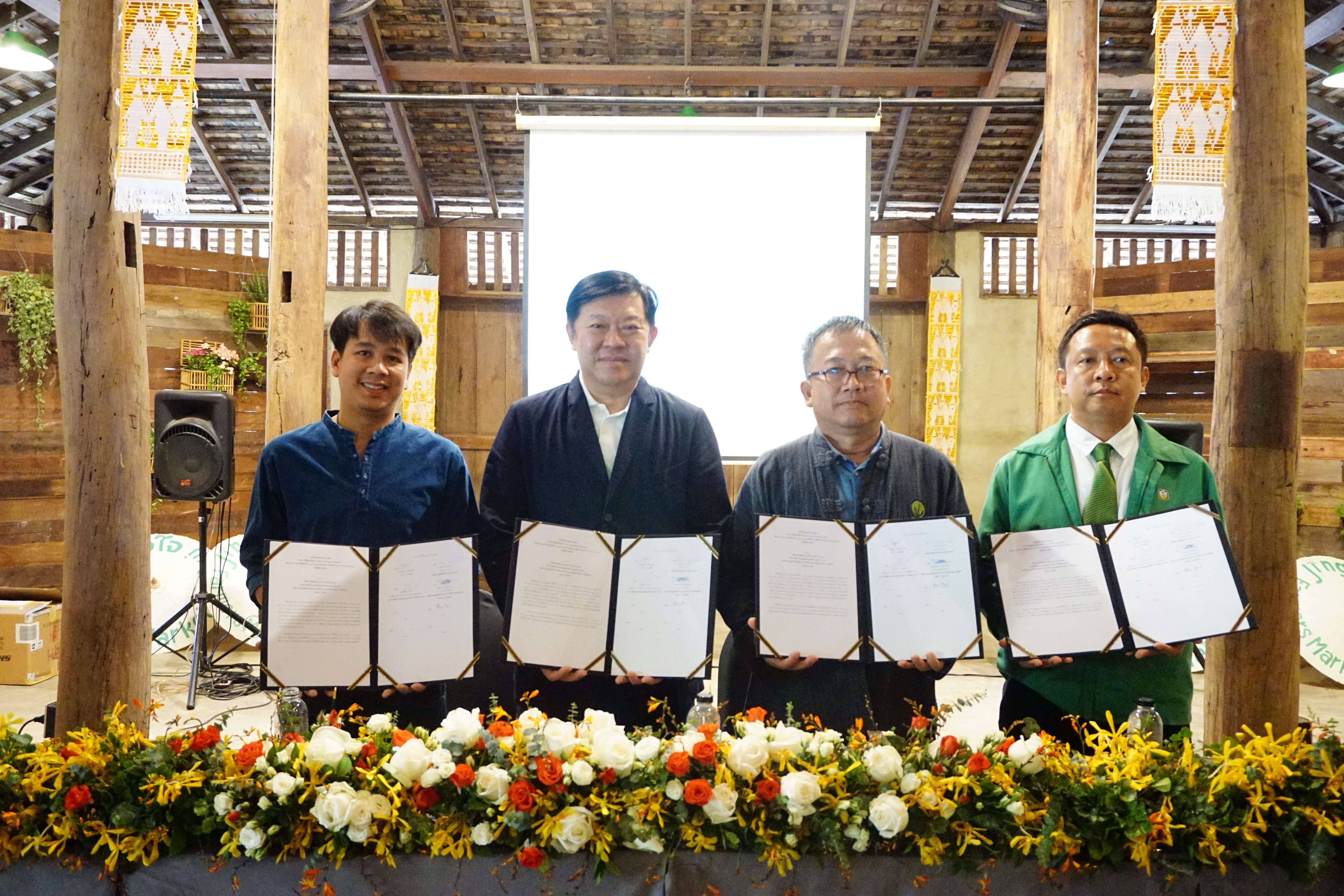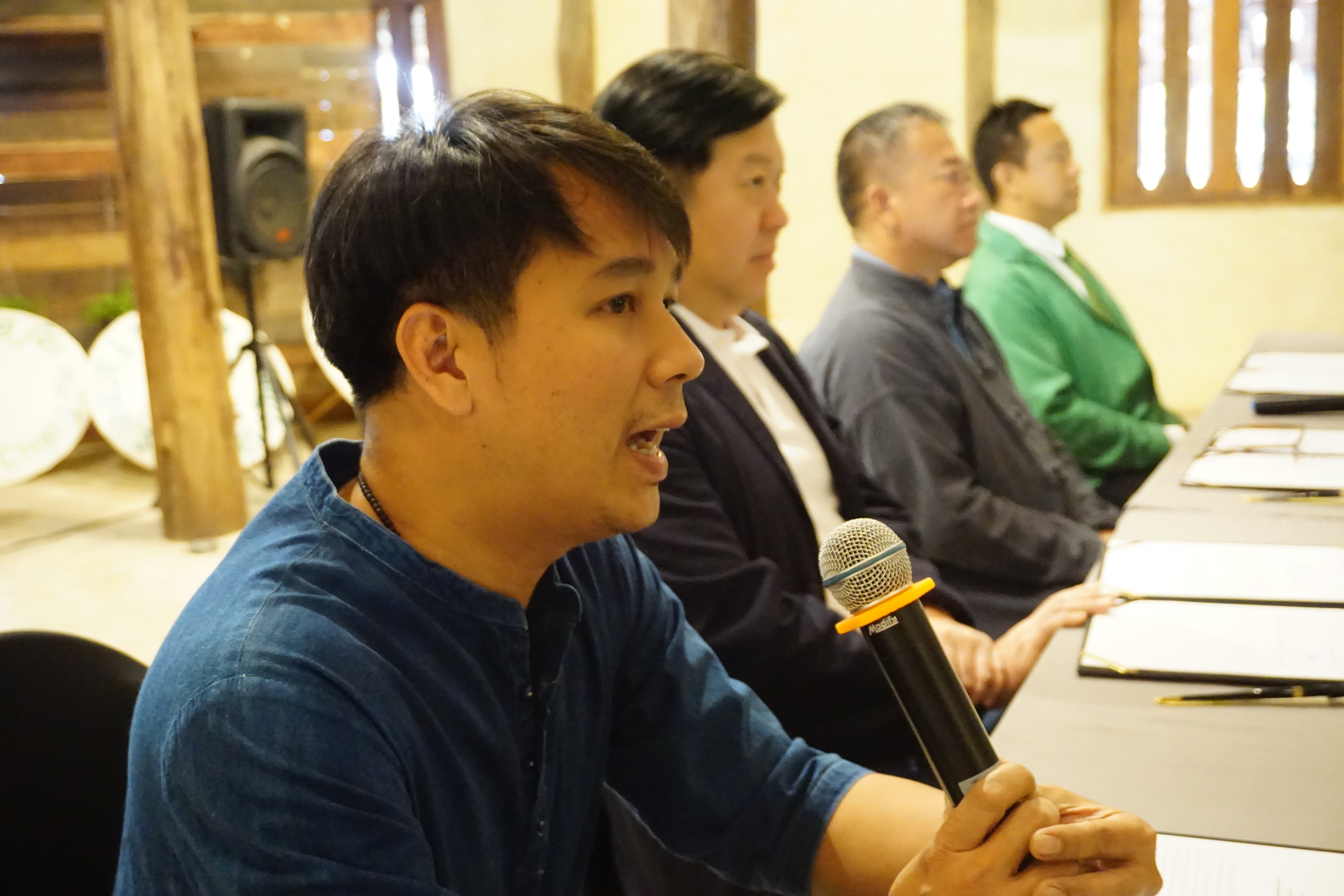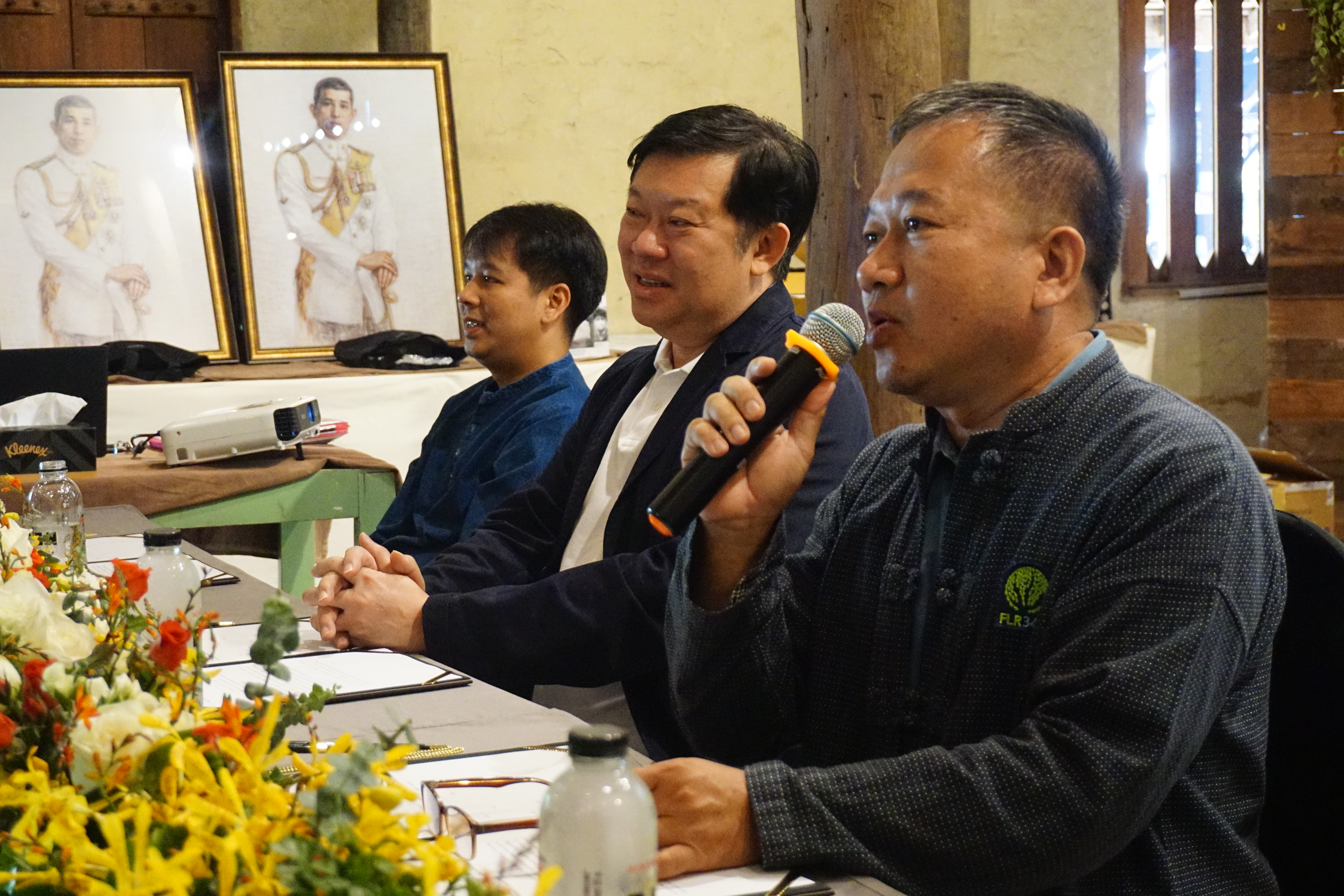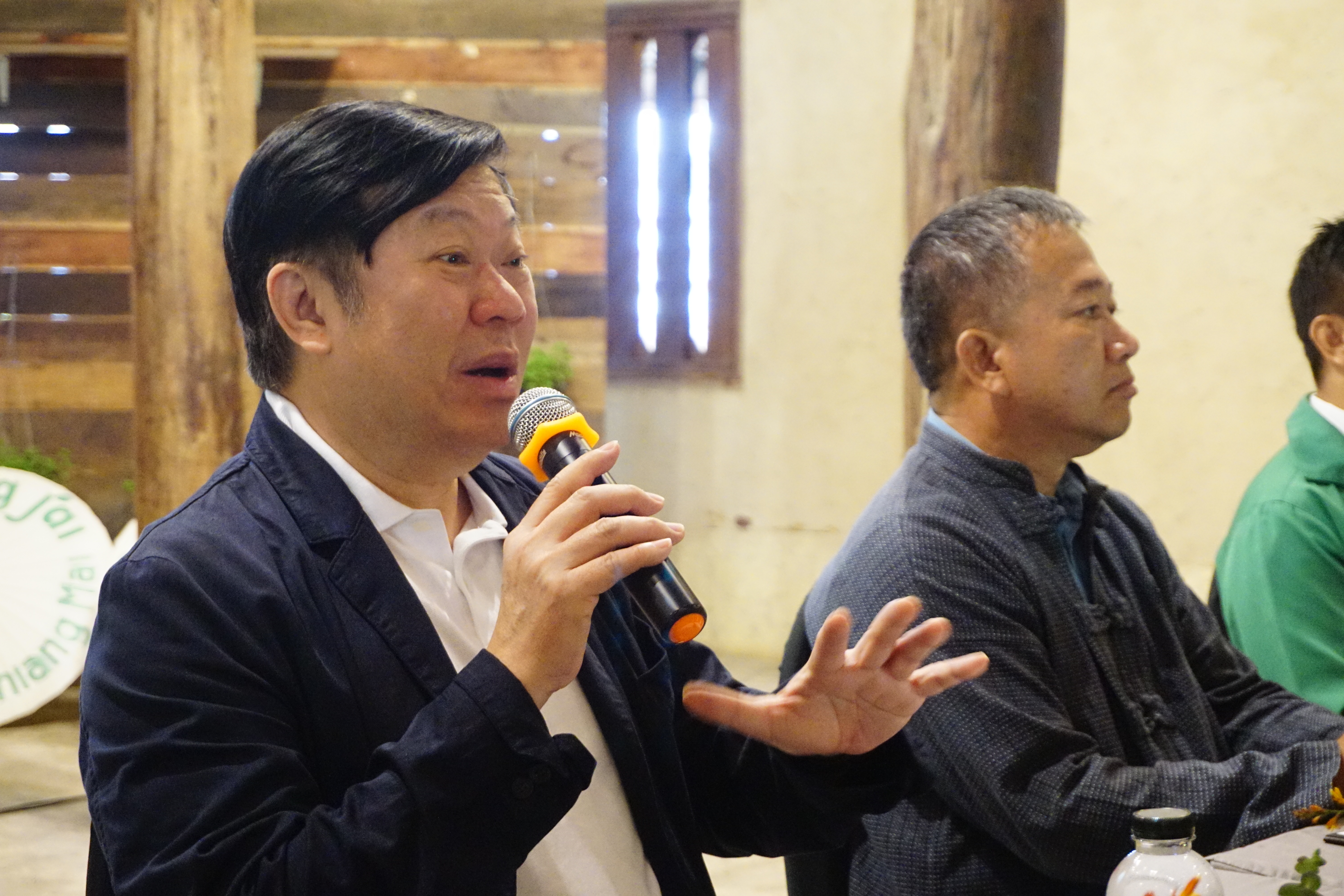The WWF is run at a local level by the following offices...
- WWF Global
- Adria
- Argentina
- Armenia
- AsiaPacific
- Australia
- Austria
- Azerbaijan
- Belgium
- Bhutan
- Bolivia
- Borneo
- Brazil
- Bulgaria
- Cambodia
- Cameroon
- Canada
- Caucasus
- Central African Republic
- Central America
- Chile
- China
- Colombia
- Croatia
- Democratic Republic of the Congo
- Denmark
- Ecuador
- European Policy Office
- Finland
WWF-Thailand pens MoU with the Central Group, BAAC, and the FLR349 Fund to further forest landscape restoration efforts in Chiang Mai, Thailand
31 January 2020
FLR349 Fund join forces with the Central Group and the Bank for Agriculture and Agricultural Cooperatives to restore the local food system and promote organic markets in order to build incentives in farmers to move away from forest encroaching monoculture farming towards “Three Forest, Four Benefits.”
31st January 2020, Jing Jai market, Chiang Mai province, ThailandWWF-Thailand, the Central Group, and the Bank for Agriculture and Agricultural Cooperatives (BAAC) have signed a memorandum of understanding (MoU) entering into an agreement initiating the FLR349 Fund to eliminate the farmers’ debt crisis and mitigate environmental issues caused by the encroachment of headwater areas. This agreement is the way forward towards cooperation that will revitalize and strengthen the local economy, while also building a healthy sustainable local food system, developing a supply chain, and creating a market place. All this will bring consumers and producers closer together as a result. The aim of the agreement is to reforest 50,000 rais (8,000 hectares) of headwater areas within 10 years, improve the livelihood of farmers in the North of Thailand, and to upscale the benefits nationwide.

From left to right: Ply Pirom, Sustainable Consumption and Production Manager at WWF-Thailand, Pichai Chirathivat, Executive Director of the Central Group, Rattapat Srichanklad, FLR349 Fund Secretary, and Anun Tangmee, Deputy Director BAAC Chiang Mai.
FLR349 is a model that promotes sustainable consumption and production (SCP) as the solution to environmental degradation and haze pollution caused by unsustainable chemical intensive monocrop maize production. The model implements forest landscape restoration (FLR), improves the local food system, and builds food security in northern Thailand. The private and public sectors have both been involved in the project since 2018.
“Currently, we are performing FLR in headwater areas in both Mae Chaem district, Chiang Mai province and Na Noi district, Nan province. We have already successfully converted 400 rais (64 hectares), or around 83,000 trees, and have supported farmers in their transition away from monocrop maize production in 15,000 rais (2,400 hectares). So far, 1,370 households in all have benefited from the project. Backing from every sector is the key to project success. This is especially so from market places and consumers, as their support of organic produce is crucial for the building of trust and confidence in the project by participating farmers,” said Ply Pirom, Sustainable Consumption and Production Manager at WWF-Thailand.

Ply Pirom speaking at the event.
This new agreement creates cooperation, preparing the fund for the increase in amount of farmer joining the project. Other than facilitating knowledge and supply chain development, the fund also controls the credits and funding provided by BAAC, ensuring the appropriate amounts are given to the farmers. As for the conversion to “Three Forests, Four Benefits” and marketing, the Central Group, who will help coach the farmers, along with various social enterprises (SE) have developed a cold chain management system to maintain produce quality, as well as market places ensuring the agricultural products are accessible by consumers from all parts, including schools, restaurants, and hotels, said Rattapat Srichanklad, FLR349 Fund Secretary

Rattapat Srichanklad speaking at the event.
The Central Group places great importance in improving not only the livelihoods of those living in the community but also environment, which includes mitigating climate change something that impacts us all. From providing coaching and buying produce, to helping develop and improve the production and processing of agricultural products from the project sites, the FLR349 Fund is another project that the Central Group supports in various ways. Though this support of organic agricultural products, our goals are to return forests in headwater areas back to abundant levels, build sustainable careers for farmers, and move towards a sustainable food chain, said Pichai Chirathivat, Executive Director of the Central Group.

Pichai Chirathivat speaking at the event.
Other than signing a MoU, the Central Group also donated funds to be used to build three greenhouses for farmers in the Mae Chaem Cooperative, Kong Khaek sub-district, Lhong Pong village. The greenhouses will become model sites for organic agriculture in the area to be followed by participating famers from Mae Chaem district.

The Central Group donate funds to build greenhouses.
About the FLR349 Fund
*FLR349 Fund is a fund that has been developed based on the King’s Philosophy of “Three Forests, Four Benefits” and the development of a value chain which could become a model for farmers living in watershed areas. The FLR349 Fund helps farmers turn their agricultural operations from forest-encroaching mono-agriculture with intensive use of chemicals into the “Three Forests, Four Benefits” agricultural system which helps to restore the environment by stopping the destruction of top soil. Farmers learn to grow perennial trees, fruit trees, vegetables and herbs in a mixed system that is sustainable, and which replenishes the soil. Such plantations function like carbon sinks and water reservoirs which make possible the production of diverse and safe foods for consumption. It helps to empower farmers and their community, helps to reduce their living expenses, and helps to keep them healthy. As a result, they can break free from the endless cycle of debt that has trapped many farmers in in our current food system. This system is consistent with the UN Sustainable Development Goals (SDGs).
To download more information about the FL349 model, visit: http://www.wwf.or.th/en/scp/reforestation_activity/flr_349/
About World Wide Fund for Nature (WWF)
For nearly 60 years, WWF has been protecting the future of nature.
The world’s leading conservation organization, WWF works in 100 countries and is supported by more than one million members in the United States and close to five million globally. WWF's unique way of working combines global reach with a foundation in science, involves action at every level from local to global, and ensures the delivery of innovative solutions that meet the needs of both people and nature.
For more information, visit: www.panda.org/news
Contact information:
Abhinand Aryapratheep
Sustainable Consumption and Production Project Campaigner.
T: 02-618-4303-05 #602
E: abhinanda@wwf.or.th